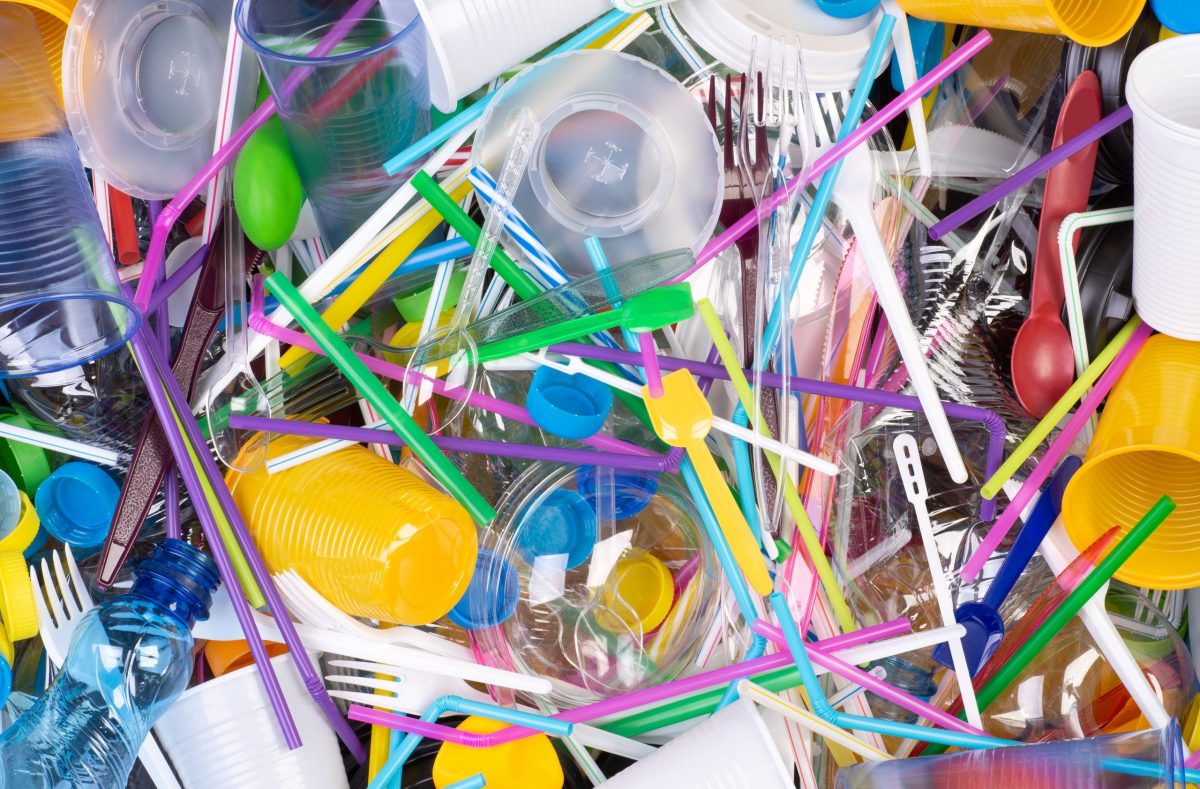
Will Scotland ban single-use plastics in 2021?
Single-Use Plastic Directive
Under the EU’s Single-Use Plastic Directive, Member States have to introduce restrictions on the sale of some of the most environmentally-harming single-use plastic products by July 2021. The single-use items have been defined by the Directive as products made wholly or partially from plastic and which are used only once (or just a few times) before they are discarded.

Some of the initial list of items to be banned includes items often associated with a quick bite to eat or a drink like plastic cutlery, plates, straws (with exemptions for medical use and to support independent living) and drink stirrers.
As well as single-use food containers, cups and drink containers made of expanded polystyrene and all oxo-degradable plastic products, (used for items like carrier bags) which refers to materials with additives added to break it down into smaller plastic pieces which remain in the environment. Plastic stemmed cotton buds are also on the list, but Scotland already banned these items in 2019.
The list has been drawn up from the most frequently found plastic items washed up on beaches across Europe for which there are alternative items readily available.
Each year in Scotland, we get through a staggering 276 million pieces of single-use plastic cutlery, 9.9 million drink stirrers and 1.7 million balloon sticks. And that’s just the tip of the iceberg as over 25 million tonnes of plastic waste is generated each year in Europe.
Fracking for plastic
Plastic pollutes at every stage of its life, so while a ban on these products will be a significant step to protecting Scotland’s beaches and oceans from pollution, the problem goes beyond the list of items in the Directive.
This is especially relevant in Scotland which has become a leading plastic producer – thanks in part to the fracking boom in America. That’s why it’s imperative that any conversation the Scottish Government has about tackling plastic pollution must address Ineos’s petrochemical plant in Grangemouth.
Since 2016, Ineos has continued to import large volumes of fracked gas from the US to Scotland to make plastic, a situation which undermines the Scottish Government’s current ban on fracking in Scotland. The longer we invest in or sustain the fossil fuel based plastic industry, which is heavily resource intensive, the longer we lock Scotland into increasing emissions that fuel the escalating climate crisis.
Scottish Government’s consultation
The Scottish Government is currently asking for views from the public on whether people support these steps to cut plastic pollution and if they want any other items to be banned. And so far, over 1300 Friends of the Earth Scotland supporters have taken action.
While we support the proposed bans, it’s crucial that the Scottish Government go much further and adopt the best practices of other countries who are being much more ambitious in their fight against plastic. For example, Ireland is planning to ban plastic sauce sachets and hotel toiletries and France has committed to banning plastic confetti, tea bags and free toys given away with certain menus.
No need to delay action on plastic
Earlier this year, the Scottish Government announced a 15 month delay to the introduction of the Deposit Return Scheme for drinks containers. This risks not only a rise in plastic pollution but also slows important action in cutting climate emissions.
Given this delay, it’s imperative that the Single-Use Plastic Directive does also not end up being delayed past July 2021. A pushback of even 12 months would result in an extra 276 million pieces of plastic cutlery being used across Scotland, not to mention the other items of the list.
The pollution caused by single-use plastic items, like those under the Single-Use Plastic Directive, is often defined by the damage they do to our beaches, oceans or birds and wildlife. But we need to remember that plastic pollutes during every stage of its life cycle and while the Directive will help eliminate some of the most harmful items from our environment, it alone will not solve the plastic crisis.
We need Scotland to move to a circular economy, through the reintroduction of the Circular Economy Bill, with high rates of reuse, repair and recycling. Essentially, we need to keep materials circulating for as long as possible before becoming waste so we can reduce the amount of materials we’re extracting from the earth’s limited resources.
The Scottish Government’s consultation is open until 4th January 2021. Click below to tell the Scottish Government you want single-use plastic items banned in Scotland.
